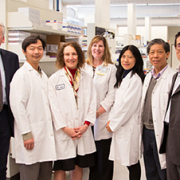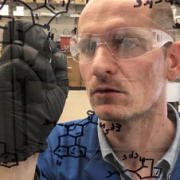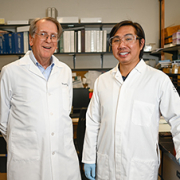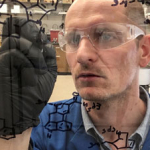Investigating a Better Therapeutic for Epilepsy

Syncanica Bio, a startup founded by Professor Mark Mascal with support from Ph.D. graduate Fei Chang, is investigating a synthetic cannabidiol (CBD) analogue as a novel therapeutic compound for conditions including anxiety, glaucoma and epilepsy.
Products containing CBD derived from cannabis or hemp plants have become popular for their potential health effects in part because CBD is less intoxicating than tetrahydrocannabinol (THC), the major psychoactive component found in marijuana.
Although the U.S. Food and Drug Administration in 2018 approved an oral CBD formulation for the treatment of some seizure conditions, CBD from extracts of cannabis or hemp poses legal problems in some states, as well as under federal law.
Mascal has developed an inexpensive synthetic alternative to CBD known as H2CBD—a molecule with a similar structure but made using commercially available compounds instead of extracts from hemp or cannabis.
H2CBD is non-intoxicating and easier to purify than the plant extract. It also eliminates the need to use agricultural land and irrigation for hemp or cannabis cultivation, avoids possible pesticide contamination and could circumvent the legal complications involved with cannabis-related extracts. Most importantly, unlike CBD, H2CBD cannot be converted to THC, eliminating the potential for abuse.
H2CBD was compared against herbal CBD in rats with induced seizures. H2CBD and CBD were found to be equally effective for the reduction of both the frequency and severity of the seizures. The work was published May 23, 2019, in the journal Scientific Reports.
Mascal is currently working with colleagues at the UC Davis School of Medicine to carry out additional studies in animals with the goal of moving into human clinical trials. UC Davis has applied for a provisional patent on anti-seizure use of H2CBD and its analogues.





